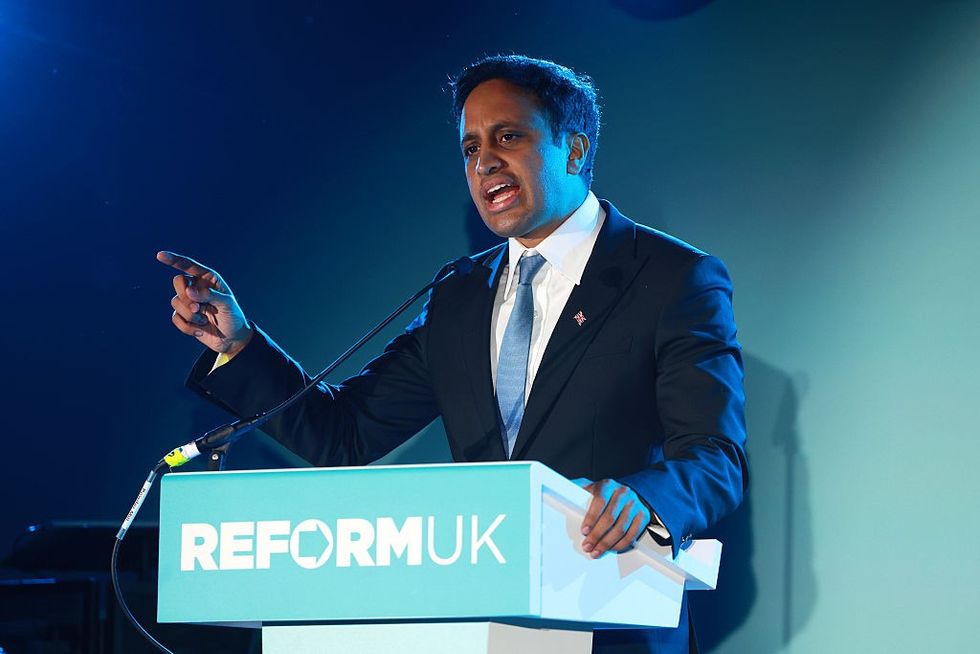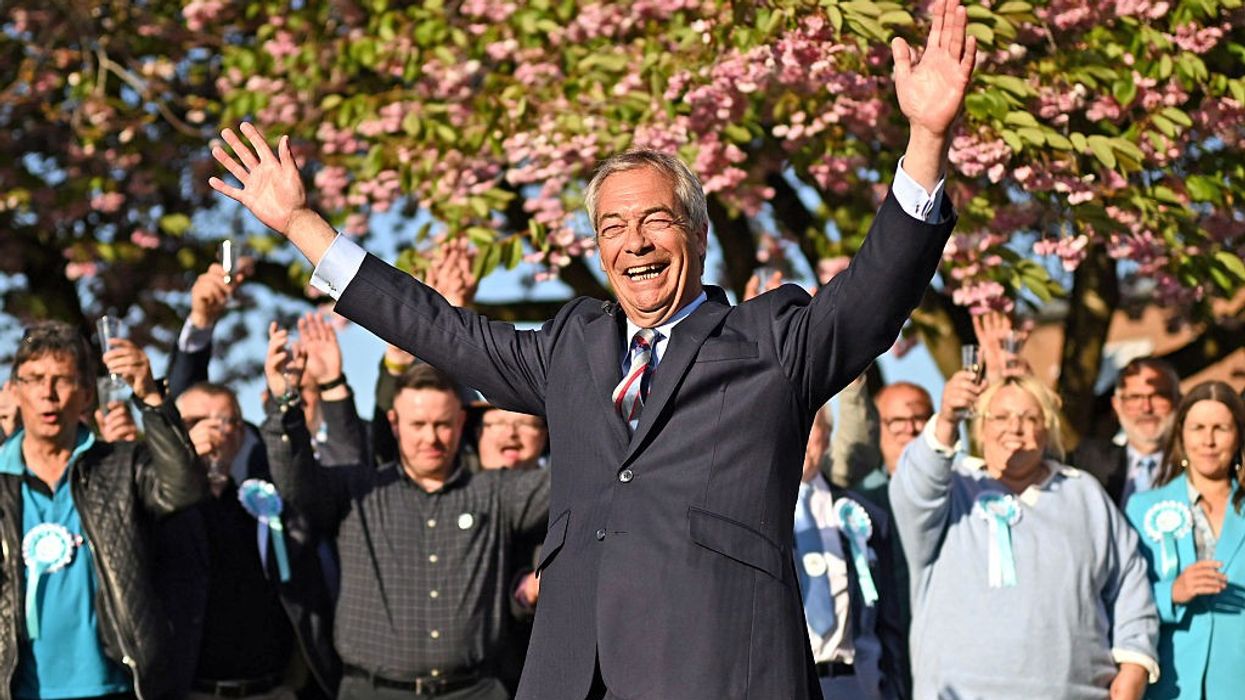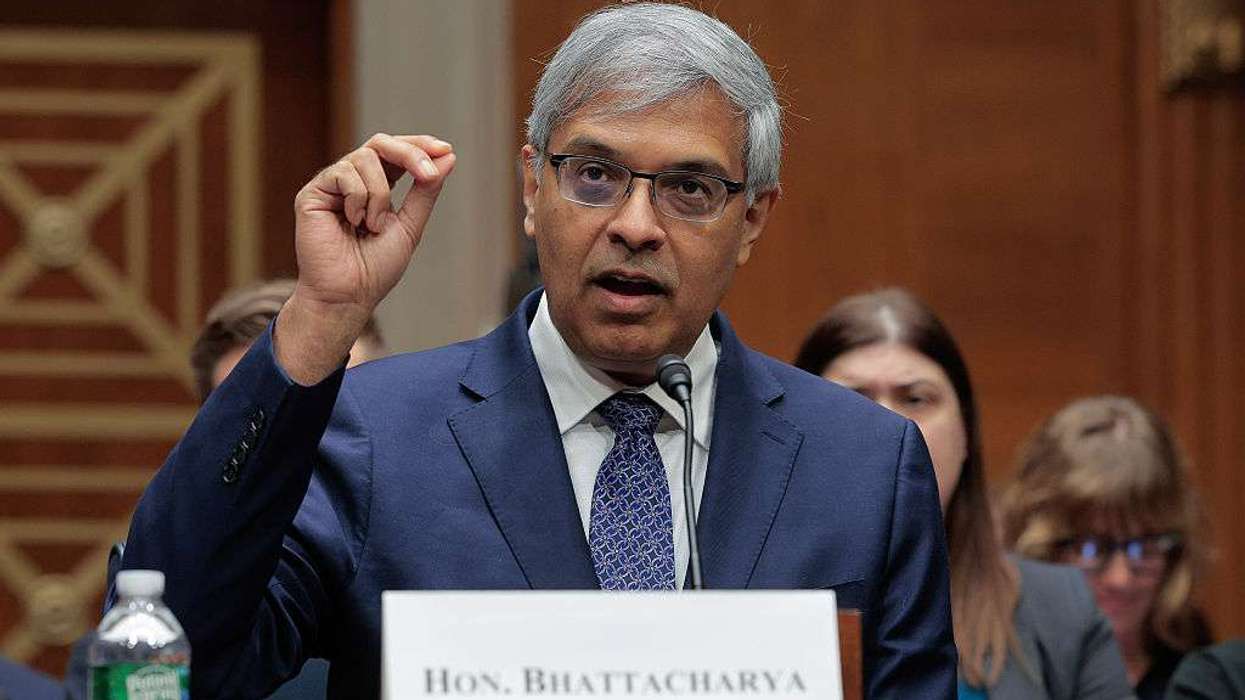WITH a thumping success in local elections, the hard-right Reform UK party has loosened Britain's two-party stranglehold and is already eyeing Downing Street.
Reform UK, which formed from the remnants of its firebrand leader Nigel Farage's Brexit party, swept over 670 local council seats as well as its first two mayoral posts.
In its biggest win of Thursday's (1) poll, the anti-immigration party also narrowly took a parliamentary seat in a by-election in Runcorn, northwest England, from prime minister Keir Starmer's centre-left Labour.
"We can and we will win the next general election" which is expected in around four years, Farage declared to newly elected Reform councillors in Staffordshire in the west Midlands.
Although the polls took place for only a fraction of the country's local seats, the results confirm Reform UK's growing popularity, after its breakthrough in last year's general election in which it picked up five seats.
"This is the best performance by a populist radical right party we've ever seen in this country," said Tim Bale, politics professor at London's Queen Mary University.
Reform has tapped into discontent over high costs and immigration numbers, as well as disillusionment with Britain's two main parties, which have dominated political life for decades.
Like his "friend" Donald Trump, Farage loathes taxes and public spending, and insists he wants "to make Britain great again".
His party has also vowed to remove DEI -- diversity, inclusion and equality -- hiring practices from councils in which it has been elected.
Farage's approach appears to be working, with Reform regularly leading in national voting intention polls.

Peter Sherliker, a 70-year-old retiree from Runcorn, said he finds Farage "inspiring".
After 30 years of backing the Conservatives, Sherliker voted for Reform this by-election because he was "very worried" about immigration levels.
"We're all hopeful for some change," he said.
But just months ago, Reform was still struggling to control its rank and file, having to pull support from several general election candidates who made racist remarks.
The party has since boosted its presence on the ground and transformed itself into an electoral machine.
"They're very clever at the way that they've pushed their agenda on to quite a underprivileged white town" like Runcorn, said local school teacher Rebecca Thomas, 44.
The party, which claims it has more than 225,000 members, sent the most number of candidates out to local ballots, pointed out Paul Whiteley, political science researcher at the University of Essex.
In the weeks leading up, Farage made frequent visits to rural areas, small towns and post-industrial centres in decline.
"We're fed up with the way we're being treated. The country's going downhill," rued Gillian Brady in Runcorn, citing high taxes and immigration as well as difficulties accessing the heaving NHS public healthcare system.
Beyond hard-up voters, Reform has also appealed to those who believe that British identity is threatened.
It has championed this cause, highlighting, for example, a grooming scandal which first emerged over a decade ago, involving the sexual abuse of primarily white British girls by men of mostly south Asian origin.
Reform is no longer just a protest vote, according to Russell Foster, political science professor at King's College London.
Many now consider it "their only option".
Meanwhile Tories, the standard bearer for the traditional right for 200 years and in power for much of that time, suffered another debacle last Thursday.
Under the leadership of Kemi Badenoch, several of the party's elected representatives have jumped ship for Reform in recent months, including the new mayor of Lincolnshire, Andrea Jenkyns.
Farage has rejected offers of a future alliance with the Conservatives, nicknamed the Tories, declaring that Reform "sank" them.
"Now the hard work begins," stressed Martin Murray, a freshly elected Reform councillor in Staffordshire.
In a jubilant post-victory speech, Murray called on his fellow councillors to "show our competence, because because that will show the whole country we are serious".
The question is whether Farage -- who has a track record of falling out with colleagues -- has it in him to direct his new army of local representatives.
He has already ousted one of the five MPs elected last year after disagreements.
While Reform may have shattered one "glass ceiling" by breaking down the two-party deadlock, another one exists, said Tim Bale.
"There are far more people who don't like Nigel Farage than there are people who like him."
(AFP)





